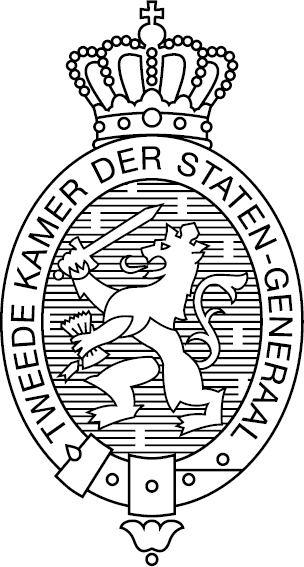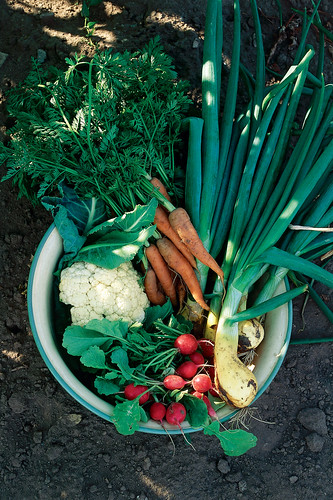Europees Parlement vraagt om duidelijke beperking van octrooien op plantmateriaal
 The European Parliament (...) having regard to the decision of the Enlarged Board of Appeal of the European Patent Office (EPO) of 25 March 2015 in Cases G2/12 (on tomatoes) and G2/13 (on broccoli), [red. IEF 14812] (...):
The European Parliament (...) having regard to the decision of the Enlarged Board of Appeal of the European Patent Office (EPO) of 25 March 2015 in Cases G2/12 (on tomatoes) and G2/13 (on broccoli), [red. IEF 14812] (...):
1. Expresses its concern that the recent decision of the Enlarged Board of Appeal of the EPO on Cases G2/12 (tomatoes) and G2/13 (broccoli) could lead to more patents being granted by the EPO in respect of natural traits introduced into new varieties by means of essentially biological processes such as crossing and selection;
2. Calls on the Commission, as a matter of urgency, to clarify the scope and interpretation of Directive 98/44/EC, and in particular Articles 4, 12(3)(b) and 13(3)(b) thereof, in order to ensure legal clarity regarding the prohibition of the patentability of products obtained from essentially biological processes, and to clarify that breeding with biological material falling under the scope of a patent is permitted;
3. Calls on the Commission to communicate its forthcoming clarification regarding the patentability of products obtained from essentially biological processes to the EPO so that it can be used as a supplementary means of interpretation;
4. Calls on the Commission and the Member States to ensure that the Union will safeguard guaranteed access to, and use of, material obtained from essentially biological processes for plant breeding, in order – where applicable – not to interfere with practices guaranteeing breeders’ exemption;
5. Calls on the Commission to pursue the exclusion from patentability of essentially biological processes in the context of multilateral patent law harmonisation discussions;
6. Calls on the Commission to report on the development and implications of patent law in the field of biotechnology and genetic engineering, as required in Article 16(c) of Directive 98/44/EC and as requested by Parliament in its resolution of 10 May 2012 on the patenting of essential biological processes;
7. Instructs its President to forward this resolution to the Council, the Commission and the European Patent Office.
 Ik heb uw Kamer eerder gemeld dat ik grote zorgen heb over het feit dat de wereldvoedselvoorziening dreigt te worden geconcentreerd bij enkele multinationals en dat ik vrees dat dit ten koste gaat van de keuzevrijheid van kwekers, telers en consumenten, wat negatieve gevolgen kan hebben voor de voedselzekerheid. Ik wil verdergaande wijzigingen doorvoeren in het octrooirecht ten gunste van de kwekers waarvoor in ieder geval wijziging van de Europese regelgeving nodig zal zijn, maar wel met inachtneming van belangen van bedrijven in andere sectoren dan de plantenveredeling.
Ik heb uw Kamer eerder gemeld dat ik grote zorgen heb over het feit dat de wereldvoedselvoorziening dreigt te worden geconcentreerd bij enkele multinationals en dat ik vrees dat dit ten koste gaat van de keuzevrijheid van kwekers, telers en consumenten, wat negatieve gevolgen kan hebben voor de voedselzekerheid. Ik wil verdergaande wijzigingen doorvoeren in het octrooirecht ten gunste van de kwekers waarvoor in ieder geval wijziging van de Europese regelgeving nodig zal zijn, maar wel met inachtneming van belangen van bedrijven in andere sectoren dan de plantenveredeling. Kwekersrecht. Octrooirecht. Uit het persbericht: A new business association, the International Licensing Platform (ILP), launches today to improve global access to and use of plant breeding traits for vegetables. There has been increasing discussion about patents on plant breeding traits over the past years, especially in Europe. Proponents of such patents claim that they foster innovation, knowledge-sharing and continued investments in research and development.
Kwekersrecht. Octrooirecht. Uit het persbericht: A new business association, the International Licensing Platform (ILP), launches today to improve global access to and use of plant breeding traits for vegetables. There has been increasing discussion about patents on plant breeding traits over the past years, especially in Europe. Proponents of such patents claim that they foster innovation, knowledge-sharing and continued investments in research and development. Brief ingezonden door Bert Gravendeel,
Brief ingezonden door Bert Gravendeel,  Voor het toetsen van rasbenamingen voor ingediende aanvragen voor toelating en/of nationaal kwekersrecht wordt Verordening (EG) Nr. 2100/94, artikel 63 gevolgd in combinatie met de door het CPVO uitgebrachte richtsnoeren met betrekking tot rasbenamingen.
Voor het toetsen van rasbenamingen voor ingediende aanvragen voor toelating en/of nationaal kwekersrecht wordt Verordening (EG) Nr. 2100/94, artikel 63 gevolgd in combinatie met de door het CPVO uitgebrachte richtsnoeren met betrekking tot rasbenamingen.%20wikimedia.png) In deze motie werd verzocht onderzoek te verrichten naar de mate, vormen en mogelijke maatschappelijke gevolgen van verdere monopolisering in de Nederlandse veredelingssector. Het
In deze motie werd verzocht onderzoek te verrichten naar de mate, vormen en mogelijke maatschappelijke gevolgen van verdere monopolisering in de Nederlandse veredelingssector. Het 
 83. Op welke wijze geeft het percentage Nederlandse aanvragen Kwekersrecht de impact van het innovatiebeleid weer?
83. Op welke wijze geeft het percentage Nederlandse aanvragen Kwekersrecht de impact van het innovatiebeleid weer?


























































































